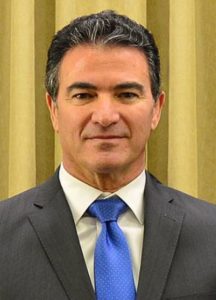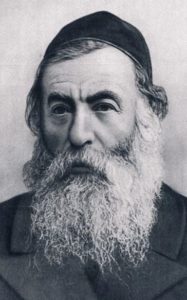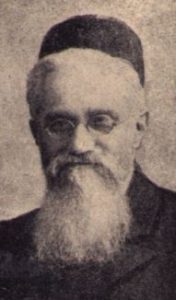The Real James Bond
 Yosef Meir Cohen (b. 1961) was born in Jerusalem to a religious-Zionist family with deep roots in the ancient city. He is a 9th-generation Israeli, and his ancestors were among the founders of the Mea Shearim neighbourhood, one of the first outside Jerusalem’s Old City walls. Cohen grew up studying in yeshivas and was a member of the Bnei Akiva religious-Zionist youth movement. After completing his military service in the IDF as a paratrooper, he spent some time studying in London. Returning to Israel in 1982, he joined the Mossad and quickly made a name for himself. He was the only religious officer in the Mossad at the time, and originally worked as a spy recruiter and handler. Over the years, he also led a number of daring spy missions which are, of course, all classified. Cohen was awarded the Israel Defense Prize, given to those distinguished individuals who are recognized for playing an instrumental role in keeping the Jewish State safe. By 2011, Cohen had risen to deputy director of the Mossad. Two years later, he was appointed Netanyahu’s national security advisor. In 2016, he took over Israel’s top spy job, becoming Mossad’s director. His task was to clean up the organization, restore its prestige (after some high-profile failures) and, most importantly, end the threat from Iran. It was Cohen who oversaw the stunning 2018 operation to raid Tehran’s nuclear archives. And it was Cohen who oversaw last week’s devastating assassination of Iran’s nuclear chief. Back in 2016, he similarly took out Hamas’ terror chief in a complex operation in Tunisia. Over the past four years, Cohen has transformed the Mossad into, by some counts, the world’s second-largest intelligence agency (after the CIA). He presides over a network of an estimated 7000 agents. Meanwhile, thanks to Cohen’s diplomatic wisdom and his fluency in English, French, and Arabic, he has also served as Netanyahu’s chief negotiator, and was behind the Abraham Accords that brought peace between Israel, the UAE, and Bahrain. He is working to bring more peace agreements with neighbouring countries, including Oman and Saudi Arabia. Last year, The Jerusalem Post ranked Cohen as the most influential Jew in the world. Netanyahu has said that he believes Cohen alone to be capable of leading the nation in the future. Despite being a grandfather, Cohen still runs marathons. All of this, combined with his gracefulness and charm, is the reason he has been described as Israel’s James Bond.
Yosef Meir Cohen (b. 1961) was born in Jerusalem to a religious-Zionist family with deep roots in the ancient city. He is a 9th-generation Israeli, and his ancestors were among the founders of the Mea Shearim neighbourhood, one of the first outside Jerusalem’s Old City walls. Cohen grew up studying in yeshivas and was a member of the Bnei Akiva religious-Zionist youth movement. After completing his military service in the IDF as a paratrooper, he spent some time studying in London. Returning to Israel in 1982, he joined the Mossad and quickly made a name for himself. He was the only religious officer in the Mossad at the time, and originally worked as a spy recruiter and handler. Over the years, he also led a number of daring spy missions which are, of course, all classified. Cohen was awarded the Israel Defense Prize, given to those distinguished individuals who are recognized for playing an instrumental role in keeping the Jewish State safe. By 2011, Cohen had risen to deputy director of the Mossad. Two years later, he was appointed Netanyahu’s national security advisor. In 2016, he took over Israel’s top spy job, becoming Mossad’s director. His task was to clean up the organization, restore its prestige (after some high-profile failures) and, most importantly, end the threat from Iran. It was Cohen who oversaw the stunning 2018 operation to raid Tehran’s nuclear archives. And it was Cohen who oversaw last week’s devastating assassination of Iran’s nuclear chief. Back in 2016, he similarly took out Hamas’ terror chief in a complex operation in Tunisia. Over the past four years, Cohen has transformed the Mossad into, by some counts, the world’s second-largest intelligence agency (after the CIA). He presides over a network of an estimated 7000 agents. Meanwhile, thanks to Cohen’s diplomatic wisdom and his fluency in English, French, and Arabic, he has also served as Netanyahu’s chief negotiator, and was behind the Abraham Accords that brought peace between Israel, the UAE, and Bahrain. He is working to bring more peace agreements with neighbouring countries, including Oman and Saudi Arabia. Last year, The Jerusalem Post ranked Cohen as the most influential Jew in the world. Netanyahu has said that he believes Cohen alone to be capable of leading the nation in the future. Despite being a grandfather, Cohen still runs marathons. All of this, combined with his gracefulness and charm, is the reason he has been described as Israel’s James Bond.
Words of the Week
The thing about smart people is that they seem like crazy people to dumb people.
– Stephen Hawking

 Yitzchak Yaacov Reines (1839-1915) was born near what is now Pinsk, Belarus to a long line of rabbis. He studied at the famous Volozhin Yeshiva where he received his rabbinic ordination in 1867. Rabbi Reines became the rabbi of the town of Svintsyan, Lithuania, just north of Vilnius. There, he opened his own yeshiva which, for the first time, included a secular studies curriculum as well. In 1882, a large assembly of rabbis gathered in St. Petersburg to discuss easing the plight of Russian Jewry, then suffering immense persecution and poverty. Reines proposed spreading his successful yeshiva model across Russia, allowing Jews to integrate into mainstream society (and economy) without abandoning their faith and traditions. The assembly rejected his plan, so Reines continued his mission on his own. His Svintsyan Yeshiva created a ten-year program that would give students both rabbinic ordination and a government-approved job. Unfortunately, the yeshiva faced too much opposition and shut down after four years. Meanwhile, Rabbi Reines was an active member of Hovevei Zion. In 1893, together with Rabbi Shmuel Mohilever, he proposed that Jews settle in their ancestral Holy Land and organize a mercaz ruhani, “spiritual centre”, that would combine Torah with good-old-fashioned agricultural labour. In 1899, Reines participated in the Third Zionist Congress, following which he kept a regular correspondence with
Yitzchak Yaacov Reines (1839-1915) was born near what is now Pinsk, Belarus to a long line of rabbis. He studied at the famous Volozhin Yeshiva where he received his rabbinic ordination in 1867. Rabbi Reines became the rabbi of the town of Svintsyan, Lithuania, just north of Vilnius. There, he opened his own yeshiva which, for the first time, included a secular studies curriculum as well. In 1882, a large assembly of rabbis gathered in St. Petersburg to discuss easing the plight of Russian Jewry, then suffering immense persecution and poverty. Reines proposed spreading his successful yeshiva model across Russia, allowing Jews to integrate into mainstream society (and economy) without abandoning their faith and traditions. The assembly rejected his plan, so Reines continued his mission on his own. His Svintsyan Yeshiva created a ten-year program that would give students both rabbinic ordination and a government-approved job. Unfortunately, the yeshiva faced too much opposition and shut down after four years. Meanwhile, Rabbi Reines was an active member of Hovevei Zion. In 1893, together with Rabbi Shmuel Mohilever, he proposed that Jews settle in their ancestral Holy Land and organize a mercaz ruhani, “spiritual centre”, that would combine Torah with good-old-fashioned agricultural labour. In 1899, Reines participated in the Third Zionist Congress, following which he kept a regular correspondence with 